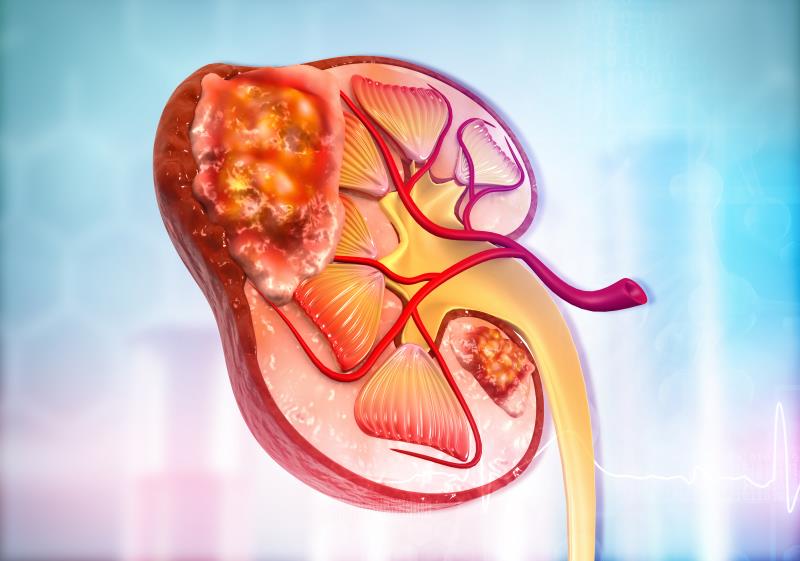
Patients with previously treated advanced or metastatic clear cell renal cell carcinoma (RCC) appear to derive greater overall survival (OS) benefit with nivolumab compared with everolimus, according to final results of the phase III CheckMate 025* trial presented at ASCO GU 2020.
“Nivolumab continues to show significant OS benefit, higher [objective response rate (ORR)], and improved [progression-free survival (PFS)] over everolimus with long-term follow-up,” said study author Dr Robert Motzer from the Memorial Sloan Kettering Cancer Center in New York, US.
Participants in CheckMate 025 were 821 patients with advanced or metastatic clear cell RCC with no central nervous system metastasis previously treated with one to two antiangiogenic therapies (≤3 total regimens). They were randomized 1:1 to receive either intravenous nivolumab (3 mg/kg Q2W; n=410) or oral everolimus (10 mg QD; n=411).
Initial results after a median follow-up of 14 months demonstrated the superiority of nivolumab over everolimus in terms of OS (median 25.0 vs 19.6 months; hazard ratio [HR], 0.73; p=0.002) and ORR (25 percent vs 5 percent; odds ratio [OR], 5.98; p<0.001). [N Engl J Med 2015;373:1803-1813]
In the present analysis, OS continued to favour nivolumab vs everolimus after a median follow-up of 72 months (median 25.8 vs 19.7 months; HR, 0.73, 95 percent confidence interval [CI], 0.62–0.85; p<0.0001). [ASCO GU 2020, abstract 617]
An improvement in PFS was noted with nivolumab vs everolimus (HR, 0.84, 95 percent CI, 0.72–0.99; p=0.03). ORR was also greater with nivolumab vs everolimus (23 percent vs 4 percent; OR, 6.86, 95 percent CI, 4.01–11.74; p<0.0001), with four and two patients on nivolumab and everolimus, respectively, having complete response (CR), and 90 and 15, respectively, having partial response (PR). Duration of response was also longer with nivolumab compared with everolimus (median 18.2 vs 14.0 months), with 28 and 18 percent, respectively, having an ongoing response.
Thirty-seven percent of responders to nivolumab did or have not received subsequent therapy and are either still on nivolumab or are off treatment and have not received subsequent therapy.
Among the 65 patients who crossed over from the everolimus to the nivolumab group (median 8.8-month treatment duration with nivolumab), median PFS following crossover was 7.4 months, while median OS from time of randomization was 65.9 months. One patient exhibited CR, while four had PR.
Grade 3–4 treatment-related adverse events (TRAEs) occurred at a lower rate in nivolumab compared with everolimus recipients (21 percent vs 37 percent). “Twelve percent of patients [in the nivolumab arm] required ≥40 mg of prednisone or its equivalent per day for the management of selected TRAEs,” said Motzer.
“No new safety signals or treatment-related deaths emerged with long-term follow-up in either arm. Nivolumab [was also] associated with a rapid and sustained improvement in health-related quality of life,” he said. “Long-term follow-up, as demonstrated in this study, informs efficacy and safety for nivolumab monotherapy,” Motzer concluded.